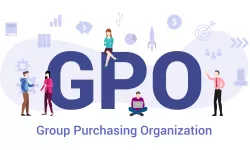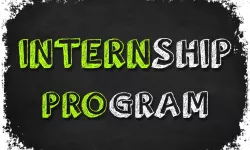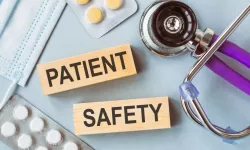Management

The day before I was expecting an employee to return from maternity leave, I received her resignation letter, citing reasons of wanting to focus on motherhood. The timing was unfortunate, but I was happy for her. As a mother, this made me wonder if I was making good life choices. As a manager, this made me feel like I’m competing with little babies for mom’s time and talents. How can we retain good employees when they’re in love with the competition? The truth is, we can’t. The kids always win, and they should. We can only hope to join mom in loving these little, squishy sugarplums by giving her the support she needs to excel at home and then in the workplace.
Raise Benefits Awareness
They say, “a baby changes everything,” and this extends to the need for benefits and the enrollment period. Benefits could be anything from financial planning, expanding insurance coverage and assigning beneficiaries, or simply knowing they have employee assistance for stress management. Having insurance coverage for breast pumps, lactation consultants and pelvic floor physical therapy is tangible proof of the company’s support for mothers of newborns. On-site childcare is an attractive benefit, too! Encourage expecting moms (and dads) to consult human resources and benefits management about what opportunities are available through your institution.
Support the Breastfeeding Journey
Time spent breastfeeding a child can equal as much time spent working a full-time job. The American Academy of Pediatrics (AAP) recommends exclusively breastfeeding for at least six months. Compare that to maternity leave, which can be as short at 6 weeks. That means new moms are working two jobs! Before she delivers, make her aware of lactation services which can include an on-site lactation consultant, time and space to express milk, and storage space for breastmilk. The AAP is an excellent resource for this, and they issued a news release in 2022 citing recommendations for corporate support of breastfeeding: American Academy of Pediatrics Calls for More Support for Breastfeeding Mothers Within Updated Policy Recommendations (aap.org)
Creative Scheduling & Cross-Training
Drug shortage mitigation proved to be a mere training ground when compared to navigating the workforce shortage, making employee retention seem more important than ever before. Overall, what moms need from their employer is to be able to leave work to care for their child without judgement from management and coworkers. The workflow should be designed so mom can meet the needs of her sick child, or attend a school function, without added guilt of her workflow left unattended. Creativity is key when it comes to meeting the needs in the department while balancing employees’ needs outside the department. This may mean schedule changes, creating PRN staffing requirements, or expanding benefits to part-time employees. Cross-training employees ensures the needs of the department are met when special occasions arise during this precious season of life.
Moms have a reputation for being pretty remarkable creatures. Research has shown that mothers’ brains are equipped to be “more efficient, flexible, and responsive” as a result of changes occurring in the perinatal period.1,2 That makes sense when we think of our cavewomen ancestors protecting their young, but these traits make valuable employees in today’s era, too. She may not be shooing away a sabertoothed tiger, but it can feel that way as she juggles the demands of work and home life. Working with employees as they venture through seasons of life, especially young motherhood, lets them know they are supported and valued at work, and creates a space for them to build a career.
These opinions are those of the author and not of Pharmacy Angle or USA Health.
Ref:
1 Kinsley, Craig Howard, and Kelly G. Lambert. “The Maternal Brain.” Scientific American, vol. 294, no. 1, 2006, pp. 72–79. JSTOR, http://www.jstor.org/stable/26061302.
2 Orchard, E.R., Voigt, K., Chopra, S. et al. The maternal brain is more flexible and responsive at rest: effective connectivity of the parental caregiving network in postpartum mothers. Sci Rep 13, 4719 (2023). https://doi.org/10.1038/s41598-023-31696-4.

Leonid Gokhman, PharmD, is a licensed, Epic Willow certified pharmacist who has more than 25 years of experience in the field of pharmacy. He has extensive experience in managing inpatient, ambulatory, and retail pharmacy operations, IT/informatics, value-added health economics, Formulary review/approval process, 340B Program, Medication Assistance Program, revenue cycle management, as well as managing both funded and unfunded patient markets.
For fifteen years, Dr. Gokhman has worked at the Harris Health System – a non-profit healthcare system located in Houston, Texas. For nine years, he’s managed the pharmacy business operations of the organization’s revenue cycle department. In his current role, he’s learned how crucial it is to have a pharmacist representation within the healthcare organization’s revenue cycle department.
Before his position, he said — much like the majority of pharmacists — he didn’t know much about the backend processes involved in medication billing, coding and reimbursements. As a frontline pharmacist, he was focused on his clinical work and patient care.
However, after learning about the inner workings of the revenue cycle processes, he’s developed a full understanding of the healthcare system’s frontend and backend processes. His knowledge and experience have allowed him to create and optimize all medication-related charging and billing processes.
This has ultimately contributed to more than doubling the organization’s cash collections, while saving millions of dollars through the 340B Program and medication assistance programs, and optimizing the organization’s Formulary.
Currently, he has three analysts working for him who are pharmacy technicians. He’s trained them to understand the system like he does. He shared a few examples of how being a pharmacist with knowledge about the revenue cycle can help your organization:

Centralizing pharmacy services is a popular topic, as health systems explore avenues that can bring value to the organization. The first step to centralizing services is determining what functions can be performed from a central location and the value of each. This will be specific to each health system as regulatory requirements are different in each state, as are the services offered by health systems, the prescription volume/mix, and the geography. Services that a central pharmacy can provide include mail order/specialty pharmacy, call center, prior-authorization, patient assistance, self-distribution/warehousing, repackaging, kit/tray management, training, order verification, and medication reconciliation.
Once a decision is made on the services, the next step is defining how each of the functions will be performed. Traveling around to the multitude of Central Pharmacies throughout the country you will see varying levels of automation versus manual processes. It is important to know about staffing limitations and address those through automation during this design phase. Automation vendors are expensive, long-term partners so this is a key decision point. Due diligence is needed, so leverage relationships with other health systems, GPOs, wholesalers, and potentially consultants, depending on the aptitude of your internal team. It is worthwhile to look outside of typical pharmacy vendors for technology solutions, as many of the activities performed from a central pharmacy are warehouse activities.
Another long-term decision is the floorplan of the central pharmacy. Even after the recent shift to move employees to work-from-home, most central pharmacies wish they had more space. There will be attempts to reduce square footage in favor of budget. If a compromise needs to be made on square footage, look to what employees could move to remote/hybrid, but be steadfast in your requirements for the operations and storage areas within the facility. Remember to define the footprint based off current opportunities AND potential future growth. It is much less expensive to plan for a potential 2nd floor upfront, rather than rip up concrete and replace support beams in the future.
Once the general floorplan is defined there will be a decision to buy existing property, build from scratch, or join existing property, which typically means co-locating with Supply Chain and/or Lab. If you are joining an existing centralized Supply Chain many of the vendor decisions may already be made (Warehouse Management Software, courier vendor, shipping software, etc.). If it’s a new build there will be a lot more decisions, but more freedom in design. Your ROI will be impacted by the location, and ability to tap into existing services.
Data is crucial in defining the revenue, costs, and savings available to the health system to support the business plan, as those will be the metrics that determine the viability of the facility. The goal is an autonomous pharmacy with 0 medication errors, 0 medication waste, and no manual intervention until medication is delivered to the patient. An autonomous pharmacy allows 100% of the pharmacists’ time spent on clinical activities, with 100% visibility into inventory levels system-wide, and 100% regulatory compliance. Lean on the wealth of data available through your EHR, dispensing software, automation software, and financial software to communicate the ROI of your proposed services. Be bold in your request of vendors, as much of the industry is inefficient today and is ripe for automation.
At this point, if your business plan supports a central pharmacy, be prepared for the multitude and magnitude of decisions that need to be made. Details matter, and there will be a lot of details. If you’ve built a custom home, you can appreciate the minutiae of building something from scratch. Defining every data/power drop, whether employees get a laptop or desktop, the number of monitors for an employee, furniture, signage, and all the way down to the location of each trash can. Do not underestimate the resource commitment from Pharmacy for the sheer volume of decisions that need to be made, the new technologies and software integration development needed, and the hiring required to open a new facility. Building out a new facility and team will demand significant resources, while the day-to-day functions of pharmacy will still need to be tended to.
Staffing a new facility is a challenge given the pharmacist and pharmacy technician shortage. Pharmacy will staff positions outside of the pharmacy department as well (Security, IT, Environmental Services, etc.). Lean on the leaders of those departments within your health system. Much of your time will be spent on interviewing and onboarding, which will all need to be timed out with a go-live date that is a moving target. Plan a calendar block for the interviews and create interview teams to tackle hiring as your team grows. This is another key focal point, because culture matters and as an organization scales you want to ensure your environment is a desirable workplace that can attract the top talent in a competitive market.
Go-live is likely a phased implementation, as it is typically too much to take on day one. Plan out your phases as many of the resources may overlap, or some of the functions may be required to go-live at the same time. With the knowledge you’ve gained with your implementation, share with other health systems. We are all in this together to provide first-class care for patients and to support the viability of the health systems in our community.

Save money. Of all the things we can be sure we need to accomplish in our chosen profession, of this we can be sure. We are tasked with saving money. You could say that a seasoned professional would find little that would be surprising about this notion although it has brought me more clarity in how consultants are positioned to make a real difference in the provision of healthcare, in a way that I think is somewhat diminished in the “daily business”.
As we have discussed, contracting and adherence to those contracts can be passively lucrative. Developing habits that combine your distribution and Group Purchasing Organization (GPO) and being mindful of that relationship is one way to assure you keep a firm eye on the bottom line.
In tandem to the points we examined around distribution, the GPO contract itself and value adds the relationship offers is something every hospital/health system should be acutely aware of.
Are you with the right GPO? Do the blend of offerings and financial incentives mesh well with your practice and plans for the future?
There are likely contracts in place that either need to be maximized or re-negotiated. Start with the GPO and build upon the terms and conditions they have already negotiated with the companies they have vetted. This cuts out a lot of background work in that the GPO has done the hard part already.
There are often areas to operationalize group purchasing possibilities to realize shareback (the monies refunded to the I/H/C for performance stop gates) and/or contract compliance thresholds. Have you combined opportunities wherever you can? Have you shifted your clinical activities to reflect a formulary that is therapeutically sound as well as contractually beneficial? This brings more money into the health system, simply by making essential contractual points a reality in practice. This approach takes back the money that many organizations leave on the table simply by how the I/H/C interacts with the GPO.
GPO’s offer quarterly reviews. This may seem like a time suck, one in which you will learn little to effectively change any approach although this review can be invaluable if you operationalize elements of it as it pertains to your individual practice. If you are a large IDN then you have economies of scale to explore, increasing your shareback. This approach also creates a relationship with the GPO such that when it comes time for a contract roll, your representatives know what you are looking for and what you plan to explore moving forward.
The online resources of GPO's can offer an additional lever of opportunity. They can tell you how close to contract compliance you are, where you could shift activity and what that means in the aggregate. What possibilities are you not taking advantage of and how your efforts may combine with Supply Chain to maximize opportunity. Each GPO approaches this a little differently, but the general idea is the same. If you use their analytics with your own, it is possible to create a unique pharmacy program for your operation that speaks exactly to the clinical pathways you wish to explore and/or change.
We have so many obstacles in our way, fire drills every day and constant change to keep up with. Our approach to the distribution and GPO channels can lighten that load so we can turn our attention to creating programming that aligns with prudent financial moves instead of working against us as we attempt to make the most out of our vendor relationships. Bring them in close instead of putting them on the back burner to simmer.

Amidst COVID-19, the U.S. labor market, particularly in healthcare, faced substantial job vacancies (Fontinelle, 2022). The sweeping resignations of 2021 exacerbated these gaps, as competition among employers to attract workers created a cycle prompting people to seek better opportunities, as speculated by Furman (2021). An estimated 60% of healthcare support workers will leave their positions within the next five years (Loria, 2023).
Pharmacies nationwide grappled with a notable shortage of pharmacy technicians. ASHP's 2021 online surveys revealed turnover rates of 21 to 30% among hospital pharmacy technicians. Additionally, 10% of respondents reported losing up to 41% of these technicians. The surveys highlighted that over 97% of participants resorted to overtime pay and utilizing pharmacists to cover vacant technician shifts. In this piece, I will detail my initiative in revamping the pharmacy internship program to combat the technician shortage at my pharmacy, located near three esteemed pharmacy schools within a 50-mile radius.
The primary goal of the revamped program is to foster the development of pharmacy interns within the hospital pharmacy's operations. Interns primarily check unit dose medication refills in automatic dispensing cabinets while also receiving training in various pharmacy tasks such as sterile and non-sterile compounding, medication history reconciliation, crash cart drawer management, and controlled substance documentation FOR DIVERSION PREVENTION.
The pharmacy interns actively participate in the development of this internship program. Interns are responsible for compiling and updating the intern manual. They also develop a competency checklist for each intern task. A new intern is trained by those who have demonstrated competency in a given task. A new intern needs to demonstrate competency before independently performing the task.
An intern must complete the required USP 797 media-filled tests to be eligible to train in the IV room. IV-trained technicians are responsible for training interns in sterile compounding following the established sterile compounding policies. The IV room specialist technician or the IV room pharmacy coordinator is responsible for checking an intern's competency in making sterile products. The same training methodology is used for training interns in performing other tasks.
Encouragement is given to interns to undertake technical writing projects to hone their skills. Those inclined towards technology can learn about system integration, while those interested in hospital pharmacy management can engage in workflow and inventory enhancement projects. Two lead pharmacy interns oversee scheduling, training, and competency checks of other interns, as well as organize quarterly intern meetings, thereby refining their leadership skills.
A well-crafted pharmacy internship program not only addresses technician shortages but also equips pharmacy interns for future hospital pharmacy careers. Over the past three years, our pharmacy intern team has burgeoned from 6 to 18 members, at one point helping cover up to seven open technician positions. Not only do pharmacy interns help maintain a smooth pharmacy operation by filling in open shifts, but they also help reduce overtime pay and burnout among staff.

Artificial intelligence (AI) has been around since the 1950s, and pharmacy has always found a way to expand its scope of practice every time a technological advancement improves efficiency. So, let’s examine some ways AI could enhance hospital pharmacies.
Fewer Shortages Through Improved Manufacturing Processes
Over the last few years, drug shortages have been a major concern for just about everyone in healthcare. Not only have supply chains failed, but major recalls may have left your hospital scrambling to take care of your patients. With AI, drug manufacturing and supply chain management should become streamlined.
AI can predict when a machine may fail or require maintenance by learning how it normally operates and performs. AI monitors equipment in real time and detects any deviation from normal activity. Earlier detection decreases equipment downtime and increases overall manufacturing productivity.
Similarly, AI can improve batch quality and consistency through more accurate quality control measures. It uses data from current quality test results to detect defects in real time. Fewer batch failures mean fewer recalls.
Lastly, certain AI algorithms work to predict drug demand. So, it can help optimize inventory, production schedules, and distribution, improving the supply chain.
Lower Drug Prices by Reducing Drug Development Costs
You know that the customer ultimately pays for the billions of dollars and more than 10 years it takes drug companies to successfully get a new drug to market. Now, AI may help reduce those costs.
Using large datasets of chemical structures and their related activities, AI may help predict how new drug candidates might behave in the human body. Along the same lines, AI can find patterns in biological data and disease progression to identify potential drug targets. So, drug companies may save on resources in two ways: finding what to target and selecting the optimal drug candidate for that target.
This same concept is also being used for drug repurposing. AI can analyze the structure of an already approved drug and find a potential new indication, which is significantly cheaper than getting a new drug candidate to market.
Beyond drug discovery and repurposing, AI can help optimize clinical trials from recruiting to analyzing data. Finding patients and evaluating protocols and trial designs can happen faster. Getting real-time trends on data means trials can more easily adapt and pivot if needed.
All of this means drug companies have less overhead and expenditure, which could lead to cost savings for hospitals.
Improved Patient Outcomes Through Better PKPD Data
Few things are more frustrating than to research a drug-related question only to find it hasn’t been researched in your patient population. Can this drug be given to someone with kidney disease? Or during pregnancy? Or an infant? AI may be the solution.
Historically, animal studies have been used to evaluate the pharmacokinetic and pharmacodynamic (PKPD) activity of a drug. These studies are time-consuming and with small sample sizes, and they may not accurately predict what will happen in humans.
But now, PKPD activity may be predicted using AI. Some models can analyze how humans would react to the drug. This means an accurate safety, efficacy, and toxicity profile can exist before the drug is even given to an animal or human.
Other models focus on individualized care by analyzing patient-specific data. This can be used to predict how an individual may respond to a particular treatment, including disease management, side effects, and potential toxicity.
The Downside of AI
Like everything, AI has some downsides that you should keep in mind:
- Unintended biases can happen, especially with limited inputted data. Examples of this include rare diseases and under-represented populations (race or gender) in clinical trials.
- Validating and regulating an AI model can be difficult. The industry and FDA provide limited guidance on this.
- Ethical considerations, like patient privacy and rights, need to remain a top concern as AI expands.
Like every technology, AI has its pros and cons. But one thing is certain—it’s here to stay. While most of the benefits hospitals may see are byproducts of other companies utilizing AI, there is no doubt that AI will eventually integrate into hospitals, optimizing your workflows and allowing your pharmacy to grow even more.

Jodie Pepin, clinical pharmacy program director at Harbor Health, has dedicated her career to patient safety. She’s worked at several hospitals across the U.S. and each time she’s wanted to start a new program or initiative, she was met with skepticism or push-back from the C-suite.
That’s because she believes that pharmacists aren’t seen with the same level of respect as a physician. As a pharmacist for almost 40 years, she says the industry is under-visualized and underutilized.
“No one gives us the same credit as a physician,” Pepin says. “We're still fighting with Medicare to fully recognize pharmacists as providers of care. When I first started at a hospital, we were all down in the basement, with no windows. That’s when I realized just how underappreciated pharmacists are. We’re seen as an afterthought.”

The pharmacy industry has been working together since 2017 on the Mediledger blockchain network, which started with the Drug Supply Chain Security Act (DSCSA). The future potential use cases should have the entire Pharmacy industry excited about the possibilities. First, let’s start with “what is blockchain?”
“Blockchain is a distributed database that maintains a continuously growing list of ordered records, called blocks. These blocks are linked using cryptography. Each block contains a cryptographic hash of the previous block, a timestamp, and transaction data. A blockchain is a decentralized, distributed, and public digital ledger that is used to record transactions across many computers so that the record cannot be altered retroactively without the alteration of all subsequent blocks and the consensus of the network.”1
DSCSA is an ideal use case, as the custody of drugs pass amongst multiple partners where there is incremental value in documenting each exchange amongst trading partners. With blockchain, you will have a historical record, that cannot be altered, of when the possession was transferred from one trading partner to another for the entirety of that product’s life cycle.
The next use case the workgroup looked to address was rostering. The price paid for drugs depends on the location and the class of trade of that location. This data is typically housed on the health system’s roster with their group purchasing organization (GPO) and includes, but is not limited to, legal name, address, DEA, HIN, NPI, NCPDP, GPO ID, and 340B ID. The manufacturers maintain a separate roster when communicating pricing to the wholesalers, and the wholesalers have yet another roster of accounts, which needs to match what the manufacturers and GPOs have in their database. So, if you are keeping track, we have three rosters: a GPO/Health System roster, a wholesaler roster, and a manufacturer roster that need to match to ensure the correct price of one given product. Then the pricing being sent by manufacturers to wholesalers are either EDI feeds or emails with Excel files to instruct the price to be given by the wholesaler to each health system location.
The current process is antiquated, repetitive, and is the cause of contract misalignment, which leads to errors in the price paid for pharmaceuticals. There is a white paper that states 4% of all pharmaceutical purchases through a wholesaler result in a pricing dispute.2 My health system is disputing successfully ~0.25%, which is ~9,000 invoices per year resulting in ~$1 million in credits from overpayments. The length of time in resolving pricing disputes creates a cash flow issue, and the discrepancies being identified are all manual so there are overpayments being missed. It would be challenging to determine the financial impact of when a product should have been ordered because it is cheaper, but the contract was not loaded correctly at the time of purchase.
When the purchase price of a product is disputed, the manufacturer is the source of truth for the price that should be paid. So, the wholesaler reaches out to the manufacturer eligibility point of contact, which is typically a different contact at the manufacturer than the contact the GPO or health system worked with to define the contracted price. Then the manufacturer and GPO have no visibility into the wholesaler ordering platform to determine when the price has been corrected. So, it is a triangle of communication where all parties should have visibility to specific information around the contracts, but do not in today’s ecosystem. This “credit and rebill” process is cumbersome, lengthy, and provides no value to any party involved.
In the future blockchain state, the rostering and contracts would be loaded onto the network and each participating member would be permissioned by the owner of that data (the manufacturer in this example) to see the data elements they should have access to. For example, the health system should have access to the price being communicated to the wholesaler for their locations, but not other health systems or the distributor fees being charged to the manufacturers. The manufacturer should have visibility to their prices that are loaded at the wholesaler, but not other competitive manufacturer products.
Once you have real-time data visibility across trading partners, you can implement “smart contracts.” Smart contracts are where you can set parameters that can automatically be implemented. For example, you can set tiers where prices change based on purchase volume, or rebates could be triggered for payment once thresholds are met. Today, rebates are a cumbersome and delayed process, which is ripe for automating. Tiered pricing and rebates are just some of the use cases available. Health systems, group purchasing organizations, manufacturers, and distributors should look internally at their processes to see if there is value implementing this technology. As a pharmacy industry, we need to be partnering together with our data to stop duplicating processes and improve efficiencies for all parties involved in the Pharmacy Supply Chain. Blockchain is a solution for contract alignment that can be implemented today, and it will provide more opportunities for streamlined workflows in the years to come.

Last month, Pharmacy Angle published a great article on four cost containment strategies your pharmacy can implement. Excellent strategies that can be achieved with clinical programming and committee approval. These initiatives are key to every successful pharmacy, although can take a long time to implement and even longer to yield results. So, what can you do in tandem to get as fiscally lean as possible in the meantime while you await approval?
While you are looking for change in the sofa cushions, start by examining all the ways you’re currently spending, perhaps and most likely on non-reimbursable money, so explore where you can make redundant change. It’s possible you are leaving money on the table by not leaning into your contracting with revenue streams/drains with your GPO, distributor, direct ships, technology, and consignment for example as fully as possible.
If you haven’t seen them already, ask for a copy of your supplier/partner contracts and take note of key milestones in the terms. You can take some simple steps to mix and match results that can make all the difference in truly maximizing your unrealized opportunities, or simply to point out areas where the contracts could be better suited to your practice.
Look at the cost minus structure of your distribution contract. Observe the milestones you need to reach to realize the maximum savings, and where you can bundle to take advantage of direct shipments or alternative delivery options such as consignment cabinetry that does not interfere with the purchase requirements of your primary distribution contract. There is always a little wiggle room in the contract. Use it to your advantage. You know how we Starbucks fans chase after those coveted stars for buying stuff? Sometime it’s best to forego the stars by not spending the money at all.
That said, use one primary distributor and stay loyal to the contract. Distribution partners will pay for that loyalty and contract compliance, and that brings more money back to your hospital in the long run.
Reduce delivery fees by voluntarily reducing your delivery days. Use a daily budget to give your purchaser guidelines to meet, and base that on the days that you get free delivery, eliminating weekends if there is an extra charge for example. You will reduce fees which can really add up, and the budget will give your pharmacy a way to anticipate costs while spreading out necessary purchases if you plan it well.
Make full use of the failure to supply clauses. It can be a pain to keep up with it, but it is lucrative and often an untapped portion of the overall agreement. Make it part of your daily activities, and you will secure contract pricing when you can’t get a contracted product.
Be as close to contract compliant as you can get. You will most likely reach milestones by simply making sure you are buying on contract, and this in turn brings more money back to your hospital. The distributor makes money when they move contracted items first, and they will share that wealth if you ask nicely.
Lean into any technology that your distributor offers. Let them help you make the most of your inventory turns, automatic conversions from non-contract to contract items, and have a plan in place for any overrides that may need to occur. Have them reviewed before the daily order is approved.
Analyze your spend and avail yourself of quarterly reviews. Your account manager can help you identify where you are not maximizing opportunities, which opportunities have changed with contract rolls for example, and what changes need to happen. Look towards this as it can be very helpful. This spend will also help you understand which clinical programming is working, what needs to be revisited and what is driving your budget. This gives you a good place to further analyze spend to pinpoint problem areas.
Just a few ideas on distribution. Next time we meet let’s talk GPO and technology. Applying some of the same principles to other contracting helps to create the full picture of how to make the most of the agreements you have in place, and where you can make changes that will be specific to your strengths.

Before Western Carolina University students Madeline Tyson and Lisbet Alvarez had even thought about applying to college, they knew they wanted to be pharmacists.
“I knew I wanted to go to an in-state institution, not only because of scholarship requirements, but I wanted somewhere near the mountains and a small community to be part of,” Tyson said. “Western has been the perfect fit for me, especially with the Early Assurance Program that has allowed me to apply and be accepted into pharmacy school.”
The Early Assurance Program is a partnership between WCU and UNC – Chapel Hill that will run through 2027, with an option to renew. The program is not only a means for WCU to increase its undergraduate enrollment, but it will also allow UNC’s Eshelman School of Pharmacy to attract students from Western North Carolina.
WCU is the fourth UNC System school to partner with the Eshelman School of Pharmacy, joining Appalachian State University, University of North Carolina at Wilmington and UNC Pembroke.
Tyson, a junior majoring in biology from Pinehurst, grew up around health care with her mother being a nurse.
“I knew I wanted to go into the medical field very early on,” Tyson said. “But the event that made me decide for sure I wanted to be a pharmacist was almost losing my grandmother.”
Tyson’s grandmother had gone to the emergency room for stomach pain and was admitted to the hospital and prescribed a medication that dialysis patients like her could not take because of life-threatening complications it could cause.
“When she got home, the complications began and she went into a coma,” Tyson said. “After she went back to the hospital, we found out about the medication error. When the medicine is prescribed, it goes to the hospital’s pharmacy and they are supposed to check the safety of medicines and any interferences that may happen when combined with other medications or treatments. My grandmother survived, but never fully recovered.”
At that moment Tyson knew she wanted to be a pharmacist and ensure patients and their families did not experience what her family had been through.
Already knowing what career field she wanted to pursue, Tyson’s college decision was almost as easy, because the mountains of Western North Carolina were calling and Tyson answered with her decision to come to Cullowhee.
After Tyson graduates from WCU, she will begin her classes at the Eshelman School of Pharmacy in the fall of 2025.
Tyson credits Darby Harris, adviser and associate instructor for molecular physiology and genetics, for helping her on her journey to becoming a pharmacist.
“Darby Harris has been so supportive and has really helped guide me through my educational journey at WCU and the application process of pharmacy school,” Tyson said. “I am very appreciative of his support as well as the rest of the WCU faculty.”
For Alvarez, it was not a medical emergency, but a passion for advocacy against health disparities in the Hispanic community that led her, a senior from Hendersonville majoring in integrated health sciences, to purse pharmacy school.
Alvarez and her family are of Mexican American descent and she wanted to be an advocate for her family and community and address the healthcare issues they face.
Alvarez was introduced to the pharmacy field during a high school internship at a local compounding pharmacy.
“The internship was an amazing opportunity to dive into the field,” Alvarez said. “I did not expect to like it as much as I did, but I loved it. I went to Henderson County Early College and realized during my internship that I wanted to pursue a degree in the health care field, specifically pharmaceuticals. I also love chemistry and to combine those two interests was great for me.”
Alvarez earned her high school diploma and associate’s degree by graduating from the early college and came to WCU in the fall of 2022.
“I have been involved in the Latinx Appreciation Student Organization during my short time at WCU and I've met a lot of people in my community,” Alvarez said. “It's pretty cool to see how people from different backgrounds have so much in common.”
As for her plans after graduation, Alvarez, a first-generation college student, wants to make a difference through the opportunities her education has given her.
“I just want to be part of the solution and bring change,” Alvarez said. “My advisors and professors in the integrated health sciences program were very encouraging of me pursing this path.”
As for imparting words of wisdom to her fellow Catamounts and incoming students, Alvarez had a few thoughts to share.
“Being the first one in my family to go to college, I would say to these students and future students to not let the fear of failure keep them from pursuing something great,” she said. “I want to pave the way for my nieces and nephews to do something great also.”
Jamie Wallen, associate professor and chemistry and physics department head is leading the project.
“The new agreement between WCU and the UNC Eshelman School of Pharmacy provides an amazing opportunity for our students to pursue a career in pharmacy,” said Wallen. “We are very excited that both Lisbet and Madeline were accepted as our first cohort and we look forward to more WCU students entering into this program. I encourage any student that might be interested in pharmacy to reach out to learn more about this outstanding opportunity.”
This story was originally published by Western Carolina University.